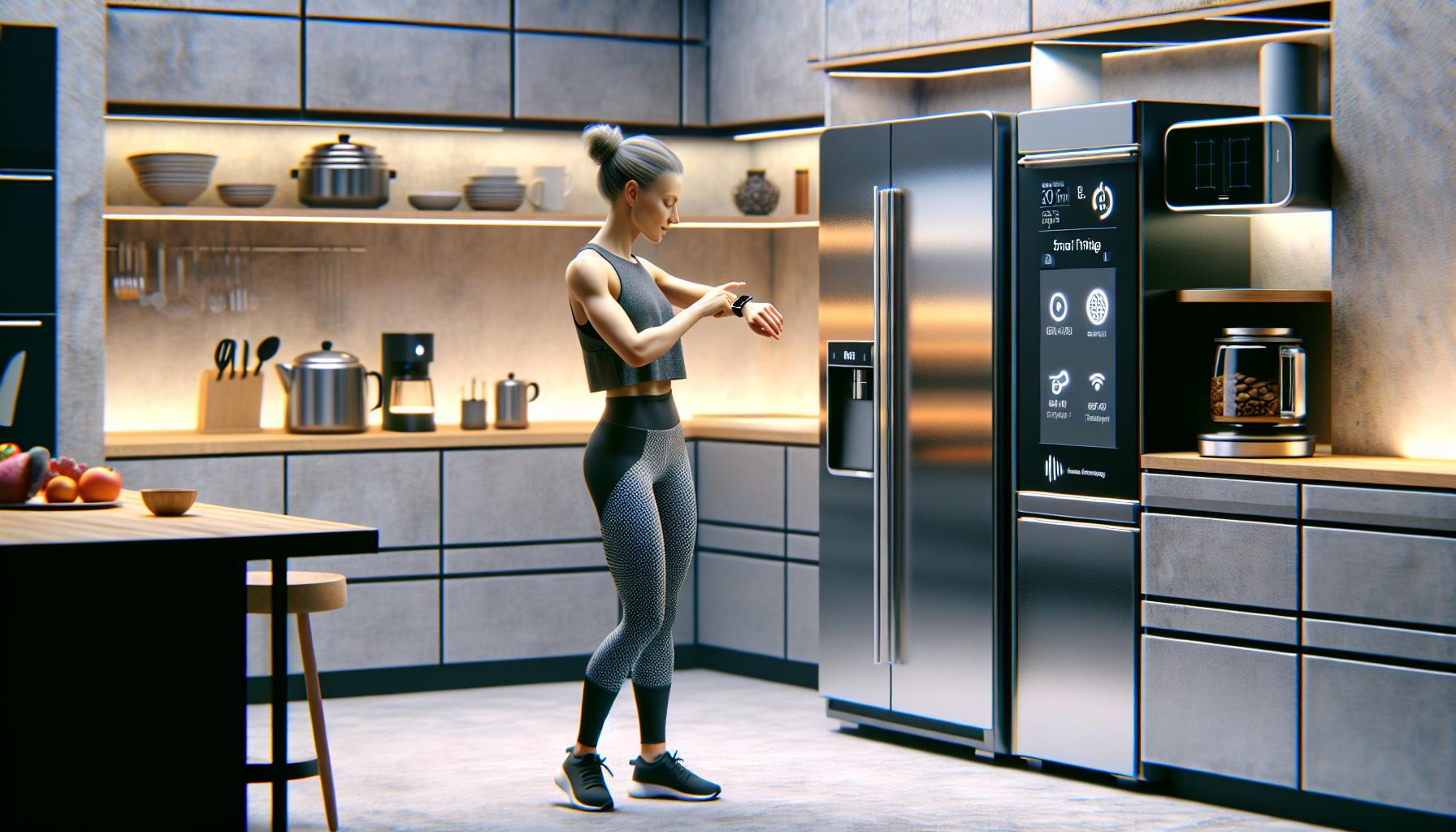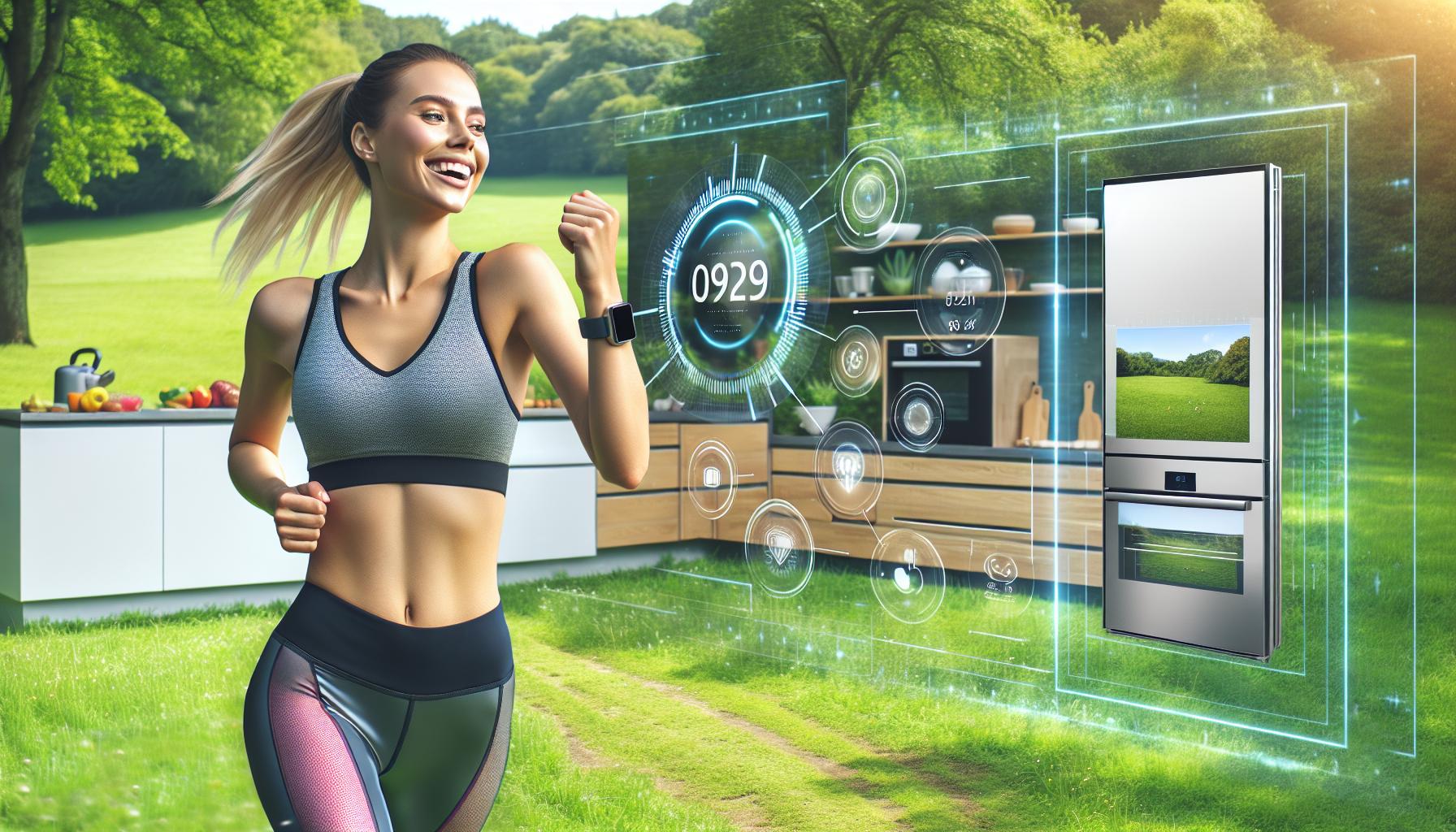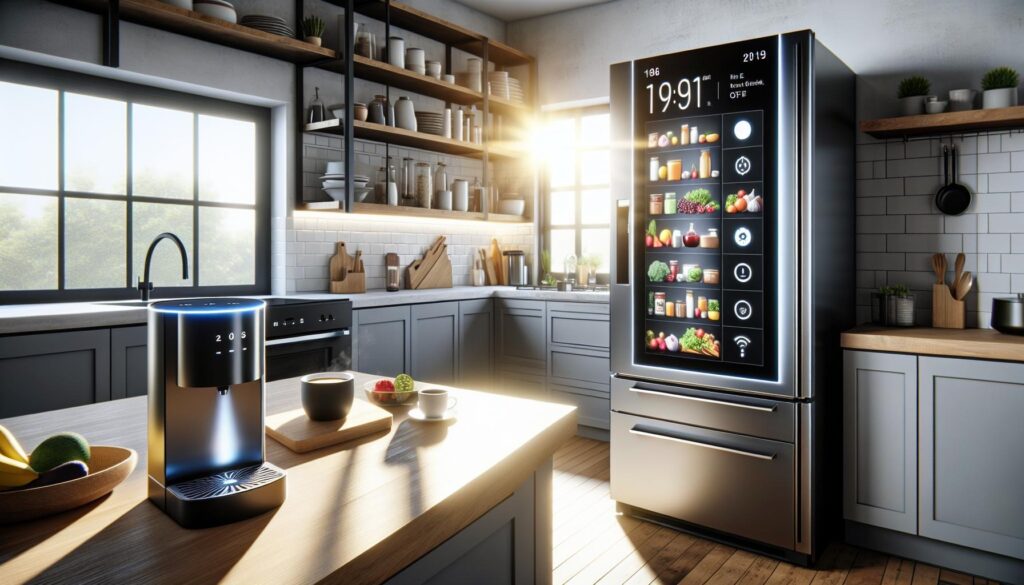In a world where fridges can text you about your dwindling yogurt supply and coffee makers brew your favorite cup before you even roll out of bed, the Internet of Things (IoT) has transformed everyday life into a tech-savvy adventure. Gone are the days of mundane chores; now, they come with smart solutions that make life easier and a bit more entertaining.
How Has the IOT Benefited Consumers?
IoT technology transforms how consumers interact with their environments. Devices like smart thermostats enable users to control household temperatures remotely, resulting in energy savings of up to 30%. This significant reduction positively impacts utility bills while enhancing comfort.
Consumer safety also benefits from IoT innovations. Smart security systems provide real-time monitoring and alerts, ensuring peace of mind. Users can view live video feeds and receive notifications about unusual activity, creating a safer living environment.
Health management apps exemplify the IoT’s role in personal well-being. Wearable devices track steps, heart rates, and sleep patterns, allowing individuals to monitor their health closely. Research indicates that users of these devices often engage in healthier behaviors, leading to better health outcomes.
Furthermore, the integration of IoT into home automation systems enhances daily routines. Smart light bulbs adjust brightness according to the time of day, making spaces more inviting. Consumers save energy and create ambient environments tailored to their preferences.
Shopping experiences have evolved with IoT advancements. Smart grocery lists sync with household inventories, alerting users when supplies run low. Retailers utilize smart shelves to track inventory in real-time, streamlining product availability and enhancing customer satisfaction.
As cars become increasingly connected, IoT applications provide drivers with tools to improve safety. Navigation apps receive live traffic updates, helping users avoid congestion. This feature not only saves time but also reduces emissions by preventing unnecessary idling.
IoT’s influence significantly shapes modern living, making routines more efficient and enjoyable. With continuous advancements, consumers can expect even greater benefits in their everyday lives.
Key Benefits of IoT for Consumers

The Internet of Things drastically changes how consumers interact with their daily lives. It brings a multitude of benefits that simplify tasks and enhance overall well-being.
Enhanced Convenience and Automation
Smart appliances like refrigerators and coffee makers automate daily routines and allow for effortless management of household tasks. Notifications about food supplies ensure that consumers never run out of essentials. Smart thermostats adjust temperatures automatically for comfort and efficiency. Consumers also experience improved convenience through connected devices that streamline operations around the home. Voice-activated systems enable hands-free control of multiple appliances, saving time. Automated shopping lists further enhance shopping experiences, allowing consumers to buy required items seamlessly. Overall, IoT ensures that daily activities become simpler and more efficient.
Improved Health and Wellness
IoT technologies contribute to better health management by tracking vital statistics and encouraging healthier lifestyles. Wearable devices like fitness trackers monitor heart rate, sleep patterns, and activity levels. Health management apps sync with these devices, providing tailored insights that motivate users to achieve fitness goals. Real-time data assists healthcare providers in monitoring patients remotely, improving access to care. Users benefit from personalized health recommendations based on collected metrics. Overall, the integration of IoT in health empowers consumers to take charge of their well-being, leading to healthier choices and proactive health management.
Cost Savings and Efficiency

The Internet of Things (IoT) provides significant cost savings and efficiency boosts for consumers across various domains.
Energy Management
Smart thermostats effectively optimize energy use in households. Users can adjust settings remotely, leading to energy savings of up to 30%. Automated energy management systems analyze consumption patterns and suggest modifications, further reducing costs. Additionally, these systems often integrate seamlessly with other smart devices, creating cohesive energy usage strategies. Monitoring real-time energy consumption equips consumers with the knowledge needed to make informed decisions, resulting in lower utility bills and more sustainable living.
Smart Home Devices
Smart home devices greatly enhance daily life through automation and efficiency. For instance, smart light bulbs automatically adjust brightness based on time of day, contributing to energy conservation. Voice-activated assistants streamline routines by managing multiple devices with simple commands, saving time and minimizing effort. Furthermore, devices like smart refrigerators track food inventory, reducing waste and unnecessary purchases. These innovative products not only improve convenience but also help consumers manage household expenses effectively.
Increased Connectivity and Communication

Connectivity and communication have transformed with the rise of IoT technology, enabling consumers to interact seamlessly with their devices.
Wearable Technology
Wearable technology enables users to monitor their health in real-time. Devices such as fitness trackers and smartwatches provide insights into heart rate, activity levels, and sleep patterns. Tracking workouts allows for better fitness planning. These devices encourage healthier lifestyles by setting personalized goals and offering reminders. In addition, many wearables connect to smartphones, providing notifications for calls and messages. As wearables continue to evolve, they play a crucial role in health awareness and personal connectivity.
Smart Appliances
Smart appliances enhance daily routines through automation and remote control features. Refrigerators can track food inventory and suggest recipes based on available ingredients. Smart ovens enable users to preheat from their smartphones, improving meal preparation efficiency. Likewise, washing machines allow for remote monitoring, letting consumers manage laundry more effectively. Integration with voice assistants adds convenience, enabling hands-free operation. Overall, these devices contribute to a more connected and efficient home environment.

